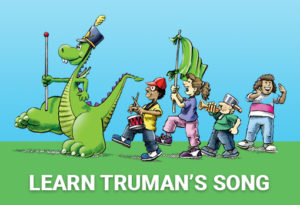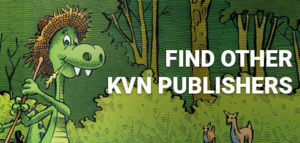Anna’s Story: Chapter Seven; On the Orphan Train
 Our story so far: Anna ran away from the cigarmaker in the tenement and found help at the Children’s Aid Society. Now they are sending her out West.
Our story so far: Anna ran away from the cigarmaker in the tenement and found help at the Children’s Aid Society. Now they are sending her out West.
“It was still dark when they woke us,” Anna said, as she, Tommy and Jake sat on the grass under the cottonwoods behind the feed store. She looked out across the rail yard, remembering.
“They gave me a suitcase and told me to put my things in it. And they told us to be quiet and not wake up the other children. I put my other dress and the rest of my clothes, and my comb and brush, into the suitcase and went downstairs.
“They took us to Grand Central Station, and we got on a train. There were two grown-ups from the Society and 30 of us, all in the same train car. I was sitting with another girl, Jenny, but mostly it was boys.”
Anna stopped for a moment. “And I thought about you, Jake, because there was a little boy there who was about four years old, with his big brother, who was seven, and they were going west together.” She sighed a sigh that caught in her chest like a sob. “I thought, if only we had gone to the Society when Mama died, we might have gone west together, too.”
Jake reached over and put his hand on hers. “We’re here now, aren’t we?”
“Ya,” she agreed. “But so much had to happen to us first, so many bad things.”
“We’re here now,” Jake repeated.
“Yes,” Anna said. “We’re here now. And there were brothers and sisters who didn’t get to be together, who went to different families. But they tried to keep them in the same town, so they could still visit each other, just like we can, I hope.”
“Did they tell you very much about the LaRocques before you got here?” Tommy asked.
“No, they didn’t know who would adopt me or where I would live,” Anna explained. “We sat in the train for a day until we got to St. Louis, and then our car was put on another train and we sat some more.
“When we got to Kansas, they started stopping at different towns, and we would get out and they would take us someplace, like a church or a school. And there were people there who wanted to adopt a child to work on their farms or just to have a child because they didn’t have one.
“We’d line up, and someone would tell about each of us, ‘This is Anna, she is nine years old and a Roman Catholic. She works hard and she can mend and help to cook.’ And people would come closer to look at you and they might ask you questions. If they wanted you, you went away with them. If nobody wanted you, you got back on the train and went to the next town.”
“How many …” Tommy started to ask, then was embarrassed and stopped.
“Four,” Anna said. “Denver was the fourth town where we stopped.”
She smiled at Tommy’s embarrassment. “It’s all right. It made me ashamed the first time, when they didn’t want me. After that, it just made me a little sad, a little angry. Some of them didn’t say anything, but some of them would talk to each other like you weren’t even there. Some said I was too little to be useful. Some didn’t want a child with a German accent. Some didn’t want a Catholic. Most of them wanted boys anyway because they wanted a farm worker who would grow up and be able to lift heavy things, not just someone to work in the house. But those ones didn’t even come over to look at me.
“The only thing that really made me sad was that Jenny, the girl I was sitting with, got adopted at the first place, and then I had to sit on the train alone until the next town,” she remembered. “After that town, though, another girl came and sat with me, because the person she was sitting with got adopted, too.
“When we got to Denver, there were 14 of us left,” she recalled. “And it was the same as the other places, but there were more people because Denver is a city.
“But they lined us up and told about each of us, and the LaRocques came up to talk to me, because they wanted a girl. They already had a son, Dennis, and he helped with the farming. They wanted a girl because Mrs. LaRocque can’t have more children, and I could help her in the house and in the farmyard.” Anna put her hand to her collar and touched the chain. “And they were Catholic, too.”
“He seems nice,” Tommy said, looking over at the loading dock where Mr. LaRocque was helping load a wagon.
“Yes. They are very nice people,” Anna agreed. “They didn’t just want a servant. They really wanted a daughter, and their son was ready to start his own life. They had saved forever so Dennis could buy a farm nearby when he grew up, and then he and Father would help each other. Instead, he wasted all the money on a gold mine with no gold.”
“Why did he do that?” Jake asked.
Anna shrugged. “He wanted to be rich. A man showed him a mine in the mountains, and there was gold ore all over the ground outside, so he bought it. But there was no gold inside the mine. The man just put the ore there to fool him.”
They sat quietly, watching Mr. LaRocque work. Then Jake asked a question.
“Is it wrong to cheat a thief?”





